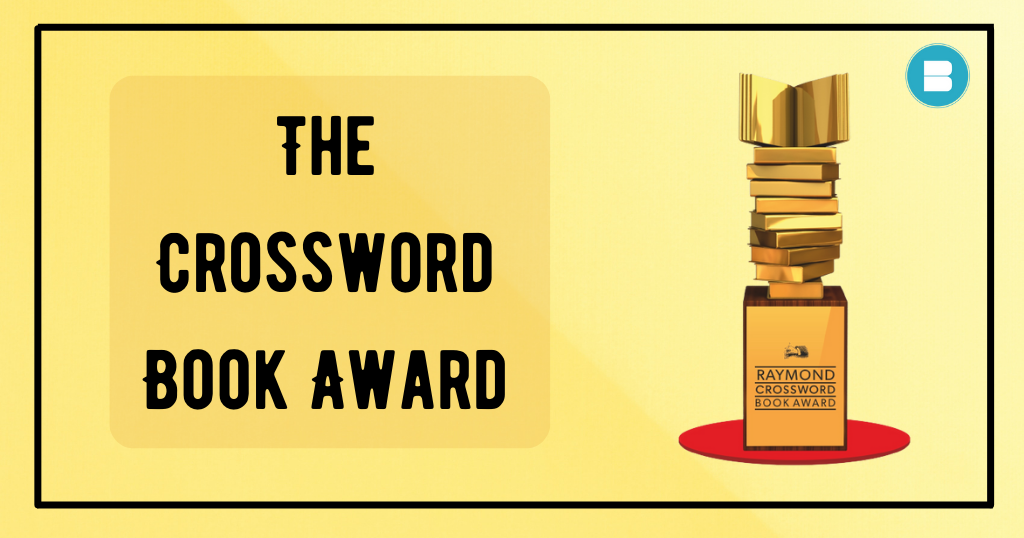
Crossword Book Award: Winners, Nomination Process, History
An Indian book award known as the Crossword Book Award is presented by Crossword Bookstores and their sponsors. In order to compete with The Booker Prize, Commonwealth Writers’ Prize, or The Pulitzer Prize, Indian book seller Crossword established the Award in 1998. Read: Learn how to create and Publish a cookbook for free? How Crossword Bookstore Awards were Started – History According to the Crossword Bookstore’s website, “Although some Indian authors have received honours abroad, we saw that India lacked a comparable accolade. In order to encourage and promote quality Indian writing, we consequently made the decision to launch the Book Awards in 1998. It is the only award in India that actively promotes authors and their works in addition to recognising and rewarding excellent writing.” The prize was initially given to an Indian citizen for a single piece of fiction. An additional award was given in 2000 for an Indian composition that has been translated into English from any Indian language. Between 2001 and 2003, no award was given. The Hutch Crossword Book Award was first given out in 2004, and it was sponsored by the Indian telecommunications firm Hutch Essar. Read: List of 7 Best bedtime stories for kids before going to bed Beginning in 2006, new nonfiction prize categories and popular award categories that were decided by the general audience were added. Hutch Essar was acquired by the English telecom giant Vodafone Group in 2008, and the prize was renamed the Vodafone Crossword Book Award. It was sponsored by The Economist Crossword Book Award and called the Economist from 2011 to 2013 in collaboration with Principal Mutual Funds and Standard Chartered. Beginning in 2014, it was sponsored by the Raymond Group. How to get Nominated for Crossword Book Award. Crossword sales data are used to choose nominations, and a combination of online and offline public vote determines the actual winners (voting at Crossword outlets). As of 2018, the prizes are 300,000 (or $3,000) for recipients of the jury award and 100,000 (or $1,500) for recipients of the people’s choice award. Crossword Book Award Winners 2020 Twinkle Khanna’s fiction novel ‘Pyjamas are Forgiving’ has won the Crossword Book Award (Popular) for Fiction in 2020. The official biography of composer A.R. Rahman written by Krishna Trilok, “Notes of a Dream,” won the Crossword Book Award (Popular) for Biography. The popular non-fiction award went to “Life’s Amazing Secrets: How to Find Balance and Purpose” by Gaur Gopal Das, while the jury award in the non-fiction category was given to Shanta Gokhale’s “One Foot on the Ground: A Life Told Through the Body.” The book “Machher Jhol: Fish Curry” by Richa Jha and Sumanta Dey Illustrator won the prize for children’s literature. Jha remarked in accepting the honour that “our labour builds the readers of future.” The Upside-Down King: Odd Tales about Rama and Krishna, a children’s book by Sudha Murty, also took first place. Read: List of Most Prestigious Literary Awards in 2022 Author Madhuri Vijay presented “The Far Field” with the Crossword prize for fiction. Additionally, this work was awarded the 2019 JCB Prize for Literature. The thought-provoking book “Diary of a Malayali Madman” by Jayasree Kalathil and N. Prabhakaran won the Crossword Book Award in the translation category. Dr. Jaishree Sharad’s book “Skin Rules: Your 6-week Plan to Radiant Skin” won the category for health and fitness, and Anju Sharma’s book “Corporate Monk, A Journey From Wealth To Wisdom” won the category for business and management. Sharma is a member of the IAS and is presently employed in Gujarat. Pyjamas are Forgiving – Twinkle Khanna – Crossword bookstore prize winner Madhuri Vijay The Far Field Crossword Bookstore prize winner Krishna Trilok Notes of a Dream Crossword Bookstore Prize Award Read: A Complete guide on how to format a book on your own The Crossword Book Awards are a platform that, in addition to honouring excellent writing, attempts to give Indian authors and books a springboard to promote themselves. The goal of Crossword Bookstores is to consistently present opportunities for customers to interact with a variety of literature that suits their reading preferences. They provide a platform for writers, both new and seasoned, to express themselves and advance the use of literature as a method of self-expression. BlueRose Publishers, too, have an award called BlueRose Awards for the authors who publish with us. Regardless of their genre, language, or geographic location, the prize aspires to recognise significant literary luminaries in the world of literature. The goal of the BlueRose Book Awards is to honour authors who have consistently worked to improve society. The goal of BlueRoseONE is to bring together under one roof the many true stories of well-known and up-and-coming authors. This area will provide readers and writers with a platform to explain and investigate the various shades of an author’s journey. You may also like: How to Create a Suspense in Your Story: A Beginner’s Guide
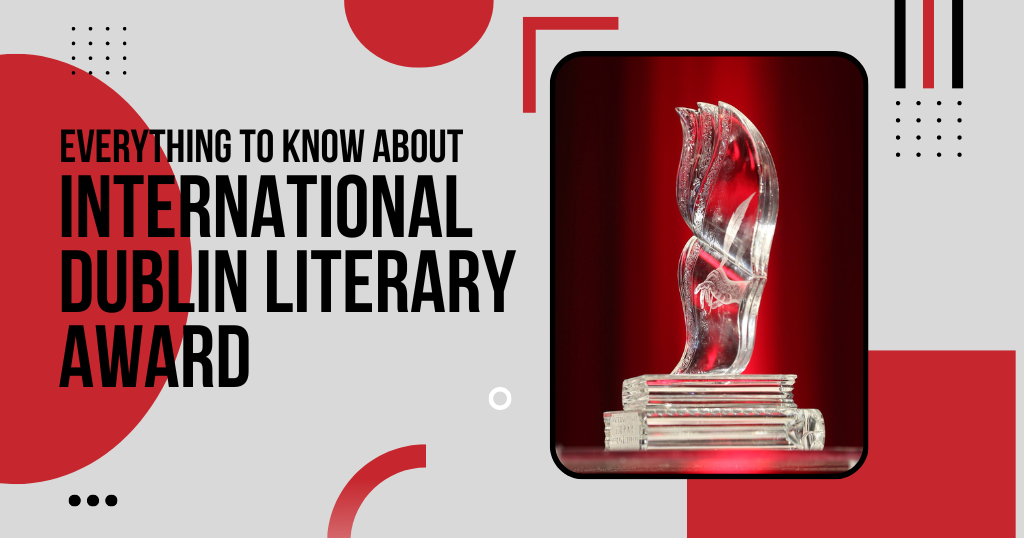
International Dublin Literary Award: Winners, History
The International Dublin Literary Award, formerly known as the International IMPAC Dublin Literary Award, is given annually for a novel published in English or that has been translated into English (Irish: Duais Liteartha Idirnáisinta Bhaile tha Chliath). It is sponsored primarily by Dublin City Council in Ireland and encourages the best in international literature. Read: List of 10 Most successful self-published authors who chose self-publishing. The International Dublin Literary Award prize is one of the most expensive literary awards in the world, at €100,000. The Literary Award Prize is split between the author and the translator if the winning book is a translation (as it has been nine times), with the author receiving €75,000 and the translator €25,000. How Dublin Literary Award was Started – History The American productivity corporation IMPAC, which had its European headquarters in Dublin, and Dublin City Council jointly created the award in 1994 as the International IMPAC Dublin Literary Award. IMPAC’s president James Irwin set the prize money at €100,000. To pay for the award and its upkeep, a trust fund was created. Since the beginning, Dublin City Public Libraries have been in charge of administering the prize. After the passing of its president and founder James Irwin in 2009, IMPAC ceased operations in the late 2000s. The trust fund ran out of money in late 2013, leaving no money to administer the award. The council consented to intervene and continue supporting the award using the name of the now-defunct company while seeking new sponser. The council reportedly paid €100,000 for the award plus €80,250 in administrative expenses in 2015. In November 2015, the prize’s name was changed to the International DUBLIN Literary Award. Read: A complete guide on how to copyright a book in India? The journalist Michelle Pauli asked, in reference to the longlist for the 2004 edition, “Where would you find Michael Dobbs and Tony Parsons up against Umberto Eco and Milan Kundera for a €100,000 prize?” She described the award as “the most eclectic and unpredictable of the literary world’s annual gongs.” Nomination Process for Dublin Literary Award. The International Dublin Literary Award Prize is accessible to books written in any language by authors from any nation, as long as the English original or an English translation of the book has been released. Two years after the date of publication, the award will be given out. The work had to be released in 2015 in order to be eligible for an award in 2017. The work must have been published in its original language between two and six years prior to its translation if it is an English translation. The Irish Times journalist Eileen Battersby writes that “several of the titles are already well known even at the time of the release of the long list,” which is why the inclusion criteria have come under fire. Read: Learn how to self publish a comic book for free. 400 public libraries in significant cities throughout the world are invited to submit nominations to Dublin City Public Libraries. Libraries can submit an application to be included in the nomination process. The shortlist (up to 10 titles) is revealed in March or April of each year, while the longlist is revealed in October or November of each year. A rotating worldwide group of judges selects the longlist and shortlist each year. From 1996 through 2003, Allen Weinstein served as the panel’s non-voting chair. Eugene R. Sullivan, a former Chief Judge of a US Court of Appeals, is the non-voting chair as of 2017. Each June, the award’s recipient is revealed. International Dublin Literary Award Winner 2022 In 2022, Alice Zeniter won the prize for her book The Art of Losing (translated by Frank Wynne). French novelist, translator, screenwriter, dramatist, and filmmaker Alice Zeniter was born in 1986. At the age of 16, Zeniter released her first book, Deux moins un égal zéro. In 2010, her second book, Jusque dans nos bras, was released. Take This Man is the English translation. Alice Zeniter International Dublin Literary Award Winner 2022 Read: List of Most Prestigious Literary Awards in 2022. BlueRose Publishers, too, have an award called BlueRose Awards for the authors who publish with us. Regardless of their genre, language, or geographic location, the prize aspires to recognise significant literary luminaries in the world of literature. The goal of the BlueRose Book Awards is to honour authors who have consistently worked to improve society. The goal of BlueRoseONE is to bring together under one roof the many true stories of well-known and up-and-coming authors. This area will provide readers and writers with a platform to explain and investigate the various shades of an author’s journey.
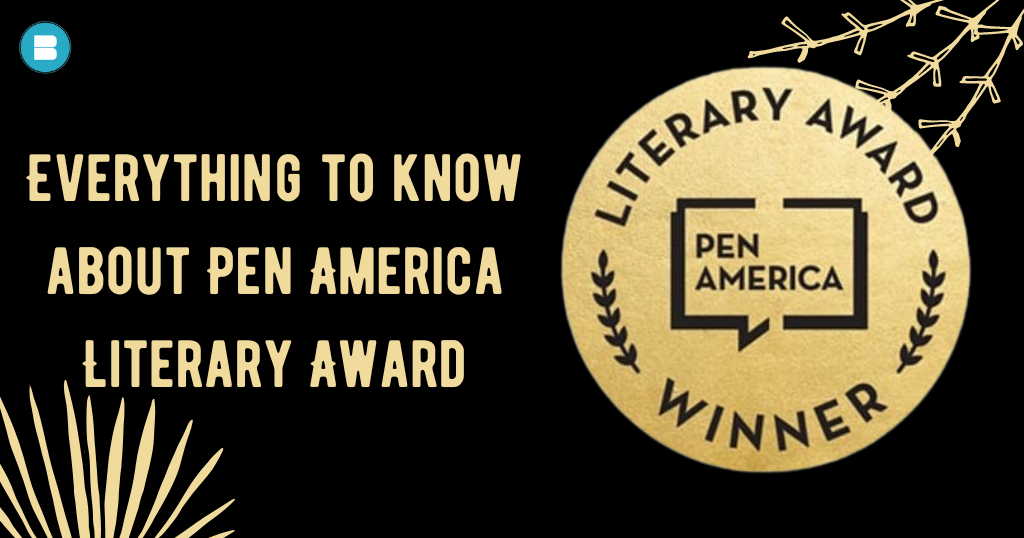
America Award: Winners, History, Nomination Process
For writers from other countries, the America Award is a lifetime achievement prize in literature. As a modest endeavour to offer alternatives to the Nobel Prize in Literature, as it describes itself. It was initially displayed in 1994. There is no cash prize associated with the honour. It is supported by the publisher Green Integer and the Contemporary Arts Educational Project, Inc., both in remembrance of Anna Fahrni. Read: 9 Must visit writer’s book cafes & spots in Hyderabad How this Award took place – History The Before Columbus Foundation sees American culture as inclusive and has always thought of the term “multicultural” as the definition of all of the American literature rather than a description of diverse categories, groups, or “special interests.” The Awards are a writers’ honour presented by other writers rather than being given by a professional organisation. Nomination Process to follow for America Literary Award. The jury is made up of six to eight American poets, prose authors, playwrights, and literary critics each year. Will Alexander, Luigi Ballerini, Charles Bernstein, Peter Constantine, Peter Glassgold, Deborah Meadows, Martin Nakell, John O’Brien, Marjorie Perloff, Dennis Phillips, Joe Ross, Jerome Rothenberg, Paul Vangelisti, and Mac Wellman have all served as members of the panel on a rotating basis. Read: Learn how to promote your book through a video trailer? No categories, no nominations, and hence no losers exist. The award recipients include both well-known and seasoned authors as well as debut authors and works. The winners’ list simply displays diversity as a result of a natural process; there are no diversity quotas. America Award Winner 2022 In 2022, Nguigi wa Thiongo won this award for achievement in International Literature. James Ngugi, better known by his pen name Nguigi wa Thiongo, was born in Kenya on January 5, 1938. He is a writer and scholar who mostly works in Gikuyu. According to reports, he was “regarded as East Africa’s leading novelist.” His writings range from children’s literature to literary and social critique, and they include novels, plays, short tales, and essays. He founded and serves as editor of the Mtiri periodical in the Gikuyu language. Other popular winners of this prize include Haruki Murakami, Tom Stoppard, and Harold Pinter. Nguigi wa Thiongo – America Award Winner 2022 Read: List of Most Prestigious Literary Awards in 2022 BlueRose Publishers, too, have an award called BlueRose Awards for the authors who publish with us. Regardless of their genre, language, or geographic location, the prize aspires to recognise significant literary luminaries in the world of literature. The goal of the BlueRose Book Awards is to honour authors who have consistently worked to improve society. The goal of BlueRoseONE is to bring together under one roof the many true stories of well-known and up-and-coming authors. This area will provide readers and writers with a platform to explain and investigate the various shades of an author’s journey.
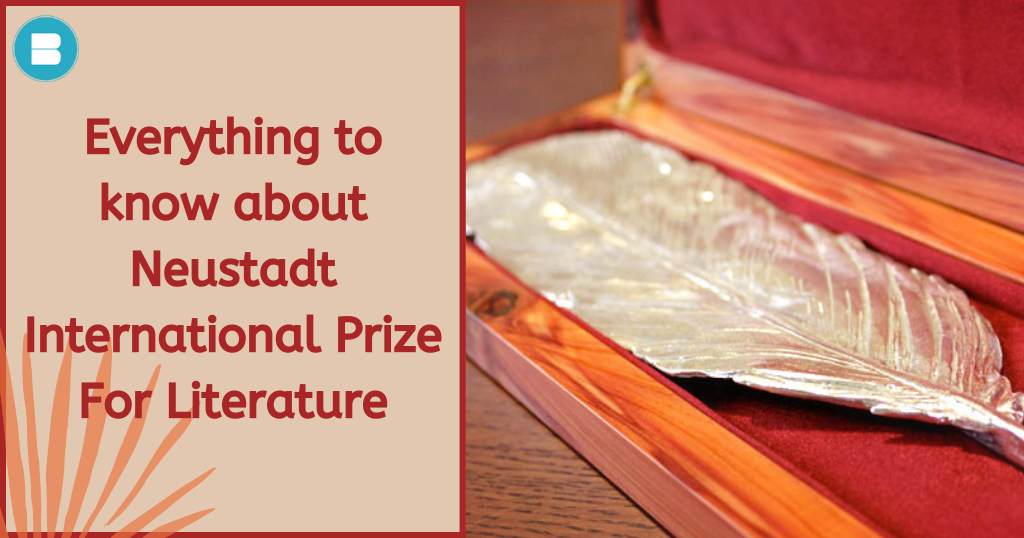
Neustadt International Prize for Literature: Winner, History
The University of Oklahoma and its international literary journal, World Literature Today, jointly sponsor the Neustadt International Prize for Literature, which is given out every two years. It is sometimes likened to the Nobel Prize in Literature as one of the more prominent international literary awards. Read: Sahitya Akademi Award: Winners, History, Nomination Process In 1982, The New York Times referred to the award as “The Oklahoma Nobel,” and today, it is occasionally termed the “American Nobel.” About 30 of its laureates, nominees, or jurors have also received Nobel Prizes since it was formed in 1970. Like the Nobel Prize, it is given to someone for their whole body of work rather than just one piece. Neustadt International Prize – History Ivar Ivask, editor of Books Abroad, founded the Neustadt International Prize for Literature in 1969 as the Books Abroad International Prize for Literature. The prize was then renamed the Books Abroad/Neustadt Prize, and in 1976 it was given its current name. It is one of the very few worldwide awards for which poets, novelists, and playwrights are all equally eligible, and it is the first international literary award of this magnitude to originate in the United States. Nomination Process for Neustadt Prize for Literature An impartial jury of at least seven people chooses the candidates. There are no restrictions on choice based on location, language, or genre. One author is put forward by each juror for the award. The winner is revealed during the gala commemorating the NSK Neustadt Prize for Children’s and Young Adult Literature after the jury members meet for two to three days at the University of Oklahoma to deliberate. Read: Learn complete difference between BlueRose’s Expert publishing v/s DIY publishing. The only such international literary prize established in the US is the Neustadt International Prize for Literature. It is one of the few international awards where playwrights, poets, and novelists can all compete. A $50,000 cash prize, an eagle feather replica made of silver, and a prize certificate are given to Neustadt Prize winners. Neustadt International Prize Winner 2022 In 2022, Senegalese writer Boubacar Boris Diop won the prize for his novel Murambi: The Book of Bones. He is a novelist, screenwriter, and journalist. Murambi, le livre des ossements, his best-known work, is a fictionalised description of a notorious massacre that took place during the 1994 Rwandan genocide. Among Indian writers, Raja Rao won this award in 1988 and Rohinton Mistry, an India-born Canadian author won this prize in 2012. Boubacar Boris Diop – Neustadt International Prize for Literature Winner 2022 Read: List of Most Prestigious Literary Awards in 2022 The prize must be presented in honour of exceptional success in poetry, fiction, or drama, and it must be given entirely on the basis of literary merit, according to the Neustadt Prize’s charter. Any living author who writes in any language is eligible as long as at least a percentage of his or her work is published in English, which will be the language of the jury discussions. The award may be used to highlight a significant corpus of ongoing effort or to cap off a career of accomplishment. (Applications for the prize are not accepted.) With only one exception—José Portugal’s Saramago, who had already won a Nobel Prize before being considered for the Neustadt—34 of the prize’s winners, finalists, or jurors have received Nobel Prizes in the preceding 51 years, demonstrating the significance of the Neustadt International Prize for Literature. For authors that publish with BlueRose Publishers, we also give out BlueRose Awards. The prize aims to honour notable literary luminaries in the field of literature, regardless of their genre, language, or geographic location. The BlueRose Book Awards are intended to recognise writers who have persistently fought to advance society. The mission of BlueRoseONE is to compile under one roof the numerous true stories of both established and upcoming authors. This section will give readers and writers a forum to discuss and delve into the many facets of an author’s journey.
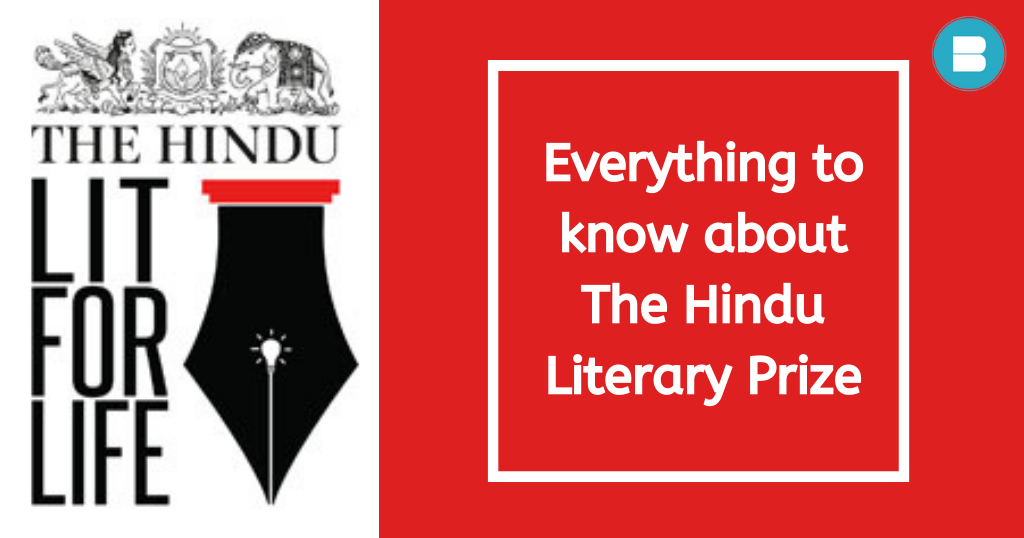
The Hindu Literary Prize: Winner, Nomination Process, History
Established in 2010, The Hindu Literary Prize, also known as The Hindu Best Fiction Award, is an Indian literary prize presented by The Hindu Literary Review, a section of the daily The Hindu. Indian works that have been translated into English are recognised. The Hindu Literary Prize was established to recognise authors who have dedicated their careers to exploring the human soul through words and concepts. The Hindu Best Fiction Award was the name of the prize’s inaugural year (2010). A non-fiction category was added as of 2018. Read: Here is the List of 7 Best Self Help Books of all time See how the Literary Prize was Started Through the Literary Review, The Hindu has always been dedicated to promoting excellent literature in both English and Indian languages. A prize to honour the best of Indian writing in English was suggested in 2010, the 20th year of the Literary Review. In addition, the Hindu Literary Prize was established to recognise authors who have devoted their entire careers to exploring the human spirit via their words and concepts. Nomination Process for Submission of Literary Prize Every year in May or June, publishers are encouraged to submit submissions, which can be complete novels or collections of short stories by a single author. Writers, academics, and critics make up the prestigious panel of judges that select the final winner. They begin with a long list of around 100 books, to the shortlist of about 7 books, after which they narrow it down to one. This award, which has been given the new name The Hindu Prize for Fiction, stands proudly among the many other highly coveted literary prizes in the globe. Read: Get tips for plotting a story: Learn How to plot a story in 2022? You may also read: Where the Red Fern Grows Book Summary & Themes Since 2018, a new non-fiction category has been created to honour the best non-fiction works written by Indian authors in both the original language and its translations. The Hindu Literary Prize Winner 2019 In 2019, Mirza Waheed for his book Tell Her Everything was awarded the Hindu Literary Prize for fiction, and Santanu Das for his book India, Empire, and First World War Culture, Santanu Das for non-fiction. Indian author Mirza Waheed was born and brought up in Srinagar, Jammu & Kashmir, but currently resides in London. Mirza has written for the BBC, The Guardian, Granta, the journal Guernica, Al Jazeera English, and T he New York Times. Tell Her Everything, his third book, was published in January 2019. It tells the tale of a father who is getting ready to tell his grown daughter, whom he sent away to boarding school when she was a young girl, about his own shady history. Santanu Das is an educator and novelist of Indian descent who is best known for his studies of First World War literature. He has been a Senior Fellow at All Souls College at Oxford since 2019 and a Professor of Modern Literature and Culture at Oxford University since 2019. India, Empire, and First World War Culture: Writings, Images, and Songs by Santanu Das, based on ten years of research, recovers the sensual experience of combatants, non-combatants, and civilians from undivided India in the 1914–1918 conflict as well as their sociocultural, visual, and literary worlds. Other popular winners of this award include Arundhati Roy, Amitav Ghosh, Anita Nair and Jerry Pinto. Mirza Waheed – The Hindu Literary Prize Winner 2019 Santanu Das – The Hindu Literary Prize Winner 2019 Read: List of Most Prestigious Literary Awards in 2022 For authors that publish with BlueRose Publishers, we also give out BlueRose Awards. The prize aims to honour notable literary luminaries in the field of literature, regardless of their genre, language, or geographic location. The BlueRose Book Awards are intended to recognise writers who have persistently fought to advance society. The mission of BlueRoseONE is to compile under one roof the numerous true stories of both established and upcoming authors. This section will give readers and writers a forum to discuss and delve into the many facets of an author’s journey. You may also like: How to Self-Publish a Book in 2024 You may also read: 100+ Adjectives Begin with I (With Definitions & Examples)
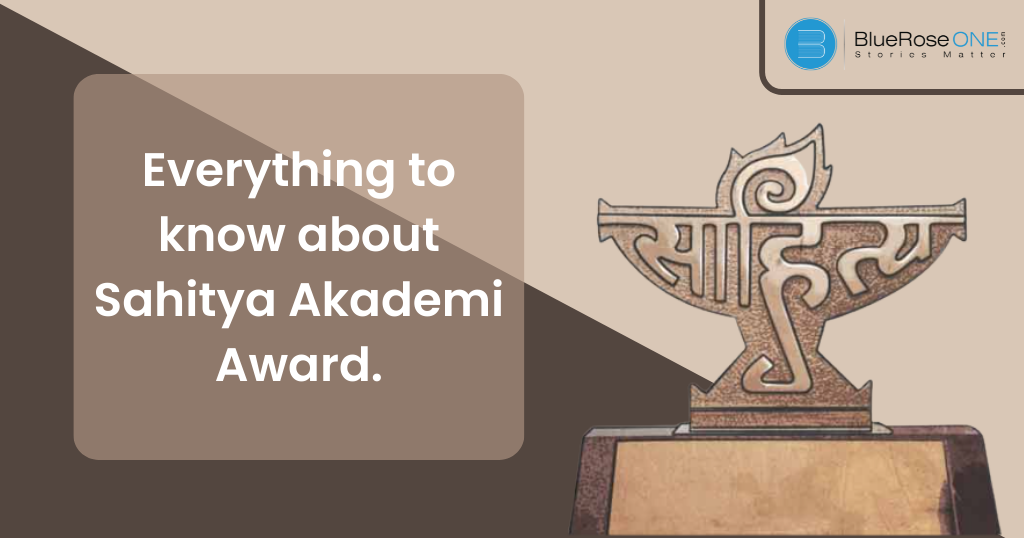
Sahitya Akademi Award: Winners, History, Nomination Process.
The Sahitya Akademi Award is a literary honour given annually to authors of the best books with the highest literary merit that have been published in any of the 24 major Indian languages, including Telugu, Kannada, Marathi, Hindi, Tamil, Malayalam, English, Bengali, and Punjabi, as well as the 22 languages listed in the Eighth Schedule of the Indian Constitution, which are recognised by the Sahitya Akademi, New Delhi. The 1954-instituted award consists of a plaque and a Rs. 1,00,000 cash reward. The award’s goals are to identify emerging trends in writing as well as to recognise and promote excellence in Indian literature. Sahitya Akademi Award – History Before India gained its independence from Britain, the British government had given consideration to the idea of creating a National Academy of Letters. The Royal Asiatic Society of Bengal proposed in 1944 that a National Cultural trust be established to promote cultural endeavours in all sectors, and the Indian government accepted the idea in principle. Read: Learn How to Publish a Book and Become a Bestselling Author. The Indian government formally established the Sahitya Akademi on March 12, 1954. It was described as a national organisation in the Government of India Resolution that established the Akademi’s constitution as working actively for the advancement of Indian letters, setting high literary standards, fostering and coordinating literary activities in all Indian languages, and promoting through them. You may also read: List of Top 10 Nikita Singh Books of All Time You may also like: Top 10 Arundhati Roy Books You Must Read in 2025 Nomination Process for Sahitya Akademi Puraskar Every year, the Sahitya Akademi selects books from each eligible language from a ground list that has been produced. Two experts have been given the task of creating the ground list. The President of the Sahitya Akademi (hereinafter referred to as the President) selects the experts from among the panels of experts that each member of the Language Advisory Board submits, each of which should contain no more than five names. The experts are required to adhere precisely to the eligibility requirements outlined in these regulations when creating the ground list. All members of the concerned Language Advisory Board (including the Convener) will get the ground list that has been compiled along with the ground list from the previous year, and they will be asked to recommend two titles each by any date that may be designated by the board. Sahitya Akademi Award Winner 2021 In 2021, Namita Gokhale won the Sahitaya Akademi Award in the English category for her book Things to Leave Behind. Namita Gokhale, an Indian author, editor, festival director, and publisher, was born in 1956. Since the publication of her first book, Paro: Dreams of Passion, in 1984, she has published both fiction and nonfiction as well as curated nonfiction anthologies. Namita Gokhale – Sahitaya Akademi Award Winner 2021 Read: List of Most Prestigious Literary Awards in 2022 The National Academy of Letters of India, Sahitya Akademi, is the only organisation that engages in literary activities in all 24 Indian languages, including English. It serves as the nation’s primary forum for literary discussion, publication, and promotion. Over the course of its vibrant 64-year history, it has continuously worked to advance good taste and healthy reading habits, maintain close communication among the various literary zones and groups through seminars, lectures, symposia, discussions, readings, and performances, speed up mutual translations through workshops and individual assignments, and create a serious literary culture through the publication of journals, monographs, and other scholarly works. For authors that publish with BlueRose Publishers, we also give out BlueRose Awards. The prize aims to honour notable literary luminaries in the field of literature, regardless of their genre, language, or geographic location. The BlueRose Book Awards are intended to recognise writers who have persistently fought to advance society. The mission of BlueRose is to compile under one roof the numerous true stories of both established and upcoming authors. This section will give readers and writers a forum to discuss and delve into the many facets of an author’s journey.
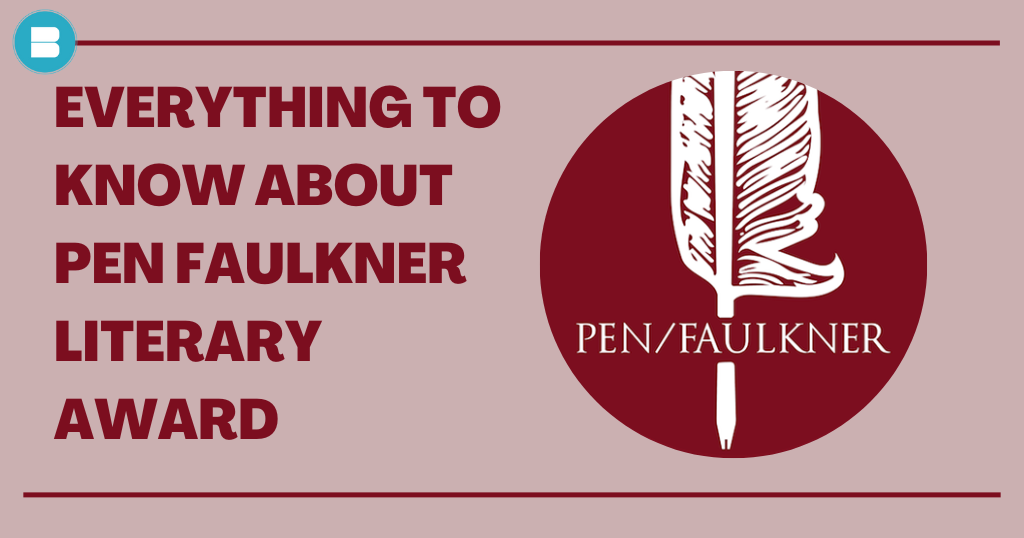
PEN Faulkner Award: Winners, Nomination Process, History
The PEN Faulkner Foundation awards the best fiction written by American citizens each year with the PEN Faulkner Award for Fiction. Each of the four runner-ups earns US$5,000, while the winner receives US$15,000. At the presentation event held in the Folger Shakespeare Library’s Great Hall in Washington, D.C., the finalists recited passages from their works. It is allegedly “the largest peer-judged award in the country,” according to the organisation. In 1981, the prize was first presented. History behind Pen/Faulkner Award. The William Faulkner Foundation was created by William Faulkner in 1949 with the money he received for winning the Nobel Prize; one of the foundation’s charity objectives was “to establish a fund to support and encourage future fiction authors.” This led to the development of the PEN Faulkner Foundation. The William Faulkner Foundation Award, the foundation’s first honour for a “notable first novel,” was given to John Knowles’ A Separate Peace in 1961. After 1970, the foundation was dissolved. Read: 9 Must visit writer’s book cafes in Kolkata Following the controversy surrounding the 1979 National Book Honor, when PEN voted for a boycott on the grounds that the award had grown too commercial, Mary Lee Settle was one of the creators of the PEN/Faulkner award. The literary organisation International PEN is connected to the prize. The honour is one of many PEN prizes that PEN International affiliates in more than 145 PEN centres worldwide sponsor. Submission Process Eligibility for 2023: Books must be released in 2022. Authors must be current, lawful residents of the United States. Books must be released by a small, academic, or commercial press that has been judged. We do not accept self-published books. There are no application forms or submission costs. Books that will be published in November or December of 2022 may be submitted with advanced reading copies or proofs. Translation: Only the author’s own translations made from another language into English are acceptable; translations made by third parties are not. The deadline for all entries is October 31, 2022. Read: Learn how to create and beautify your book cover design The writers are allowed to submit as many books as they want. To submit your book, you just need to the mail address given on their website. The PEN Faulkner Foundation Board of Directors selects three writers each year to serve as judges, assuring that there is no outside influence on how our prizes are decided. These judges choose 10 novels for the initial longlist, then five for the finalists, and lastly one for the “first among equals” prize. Pen Faulkner Award Winners 2022 In 2022, the Pen Faulkner award was presented to Rabih Alameddine for The Wrong End of the Telescope; Nawaaz Ahmed for Radiant Fugitives; Carolina de Robertis for The President and the Frog; Carolyn Ferrell for Dear Miss Metropolitan; and Imbolo Mbue for How Beautiful We Were. The PEN Faulkner Foundation promotes reading and writing relationships to enliven and uplift both individuals and communities. They are committed to the idea that when all voices are included in our conversations and when tales from a wide range of perspectives enrich our daily lives, our culture thrives. They hold that the written word is crucial for fostering civic conversation and fostering empathy within and between communities. Rabih Alameddine – Faulkner Award Winner 2022 Read: List of Most Prestigious Literary Awards in 2022 BlueRose Publishers have an award called BlueRose Awards for the authors who publish with us. Regardless of their genre, language, or geographic location, the prize aspires to recognise significant literary luminaries in the world of literature. The goal of the BlueRose Book Awards is to honour authors who have consistently worked to improve society. The goal of BlueRoseONE is to bring together under one roof the many true stories of well-known and up-and-coming authors. This area will provide readers and writers with a platform to explain and investigate the various shades of an author’s journey.
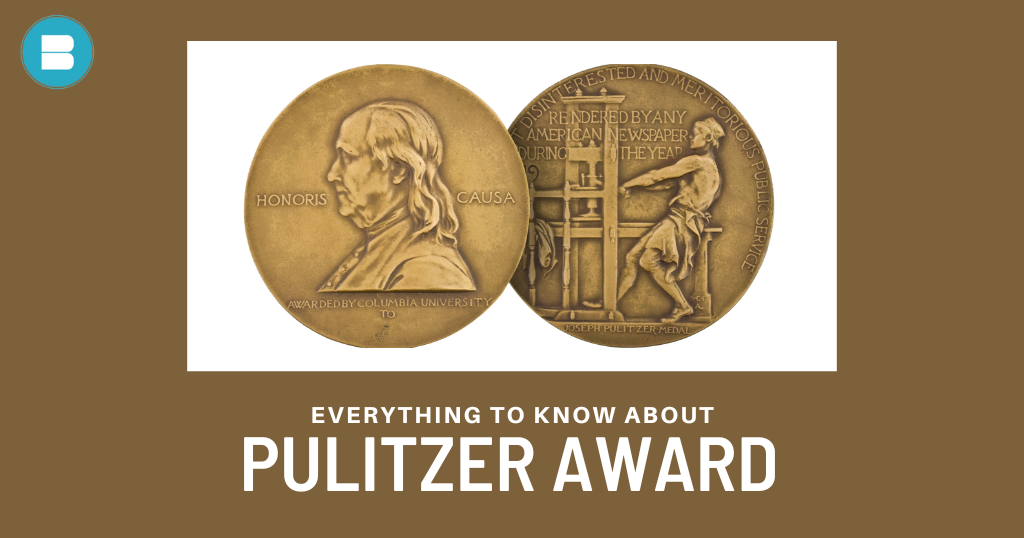
Pulitzer Prize: Winners, Nomination Process, History
The Pulitzer Prize is given to individuals who have excelled in American literature, music composition, magazine, newspaper, and online journalism. It is managed by Columbia University and was created in 1917 by stipulations in the will of Joseph Pulitzer, a newspaper magnate who had amassed a fortune. Each year, prizes are given out in twenty-one categories. Each winner in twenty of the categories is given a certificate and a US$15,000 cash prize (up from a $10,000 prize in 2017). Read: Learn how to publish an Academic book for free. History In his will, newspaper publisher Joseph Pulitzer left money to Columbia University in order to start a journalism programme and create the Pulitzer Prize. $250,000 was allotted for the award and scholarships. He listed “four journalism awards, four literary and dramatic awards, one education award, and four trip scholarships.” The first Pulitzer Prizes were given out after his passing on October 29, 1911, on June 4, 1917. (they are now announced in April). Colonel Robert R. McCormick, who was in charge of the Chicago Tribune, believed that the Pulitzer Prize was nothing more than a “mutual admiration society” and should not be taken seriously. Consequently, the newspaper refused to submit an entry for the award during McCormick’s leadership until 1961. The Columbia trustees oversaw the awards until 1975. Read: List of 10 Best Thriller books to read in 2022. Nomination Process Only works that have been specifically entered for consideration by the Pulitzer Prize are taken into account. For each chosen entry category, there is a $75 entrance fee. Entries cannot just be accepted because they are literary or musical; they must fit in at least one of the designated award categories. Regardless of their properties, works may only be put into a maximum of two categories. The Pulitzer Prize Board chooses 102 jurors annually to serve on 20 distinct juries for the 21 award categories; one jury recommends winners for both photography awards. Except for those for the Public Service, Investigative Reporting, Explanatory Reporting, Feature Writing, and Commentary categories, which have seven members each, juries typically include five members. However, there are always three people in a book jury. Three candidates are nominated by the jury for each award category. The board chooses the winner by majority vote among the nominees, or, in the case of a tie vote, chooses a new entry without considering the nominees. The board may also decide not to make an award. Read: List of most prestigious literary awards in 2022. The jury members for the board and journalism are not compensated for their participation, while the jurors for letters, music, and theatre are given an honorarium of $2,000 per year, and each chair is given a stipend of $2,500. Pulitzer Prize Winners 2022 In Book, Drama, and Music category, there are several sub-categories. In 2022, Joshua Cohen was awarded the Pulitzer Prize in fiction category for ‘The Netanyahus: An Account of a Minor and Ultimately Even Negligible Episode in the History of a Very Famous Family’; James Ijames in Drama category for ‘Fat Ham’; Nicole Eustace in History category for ‘Covered with night’ as well as, Ada Ferrer for ‘Cuba: An American History’; in Biography category it was awarded to Chasing Me to My Grave: An Artist’s Memoir of the Jim Crow South, by the late Winfred Rembert as told to Erin I. Kelly; In poety category it was awarded to frank: sonnets, by Diane Seuss; in General Non-Fiction category to Invisible Child: Poverty, Survival & Hope in an American City, by Andrea Elliott; and in Music to ‘Voiceless Man’ by Raven Chacon Joshua Cohen Pulitzer Prize Winner 2022 Indian writers who won this prize include Geeta Anand, Jhumpa Lahiri and Siddhartha Mukherjee. Pulitzer Prize is one of the most prestigious awards in literature and journalism. It transforms the careers of the authors who receive them. It celebrates good and free literature and journalism from around the world. BlueRose Publishers, too, have an award called BlueRose Awards for the authors who publish with us. Regardless of their genre, language, or geographic location, the prize aspires to recognise significant literary luminaries in the world of literature. The goal of the BlueRose Book Awards is to honour authors who have consistently worked to improve society. The goal of BlueRoseONE is to bring together under one roof the many true stories of well-known and up-and-coming authors. This area will provide readers and writers with a platform to explain and investigate the various shades of an author’s journey.
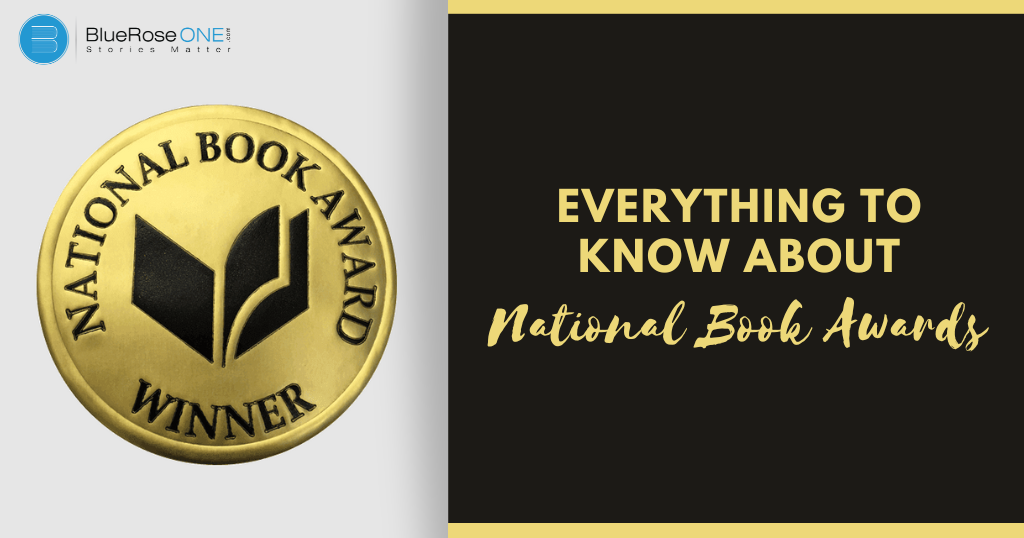
National Book Awards: Winners, Nomination Process, History
The National Book Awards are a group of yearly literary honours given out in the United States. The National Book Foundation rewards authors with two lifetime achievement awards in addition to the National Book Awards during the final National Book Awards Ceremony held each November. Read: How to Publish a Book and Becoming a Bestselling Author How National Book Award/American Literary Award was started – History The American Booksellers Association founded the National Book Awards in 1936. They were discontinued during World War II and reinstituted by three groups representing the book business in 1950. The pre-war awards were open to publishers and authors from other countries. They are now given to American authors for works that were released in the country roughly during the award year. The National Book Foundation is a non-profit organisation that was founded in 1988 to oversee the National Book Awards, improve them, and “go beyond [them] into the realms of education and literacy,” notably through funding authors’ public appearances. To “celebrate the best literature in America, increase its readership, and ensure that books have a prominent position in American culture,” according to its mission statement. You may also like: A Complete List of Anuja Chauhan Books Nomination Process for National Book Awards Currently, one book (author) receives a National Book Award every year in each of the following five categories: fiction, nonfiction, poetry, translation, and children’s literature. Numerous more categories have received prizes, but they have since been retired or merged into the present five. The “Medal for Distinguished Contribution to American Letters” and the “Literarian Award for Outstanding Service to the American Literary Community” are two further lifetime achievement honours given out annually by the National Book Foundation. Read: Step by step guide: How to format a Book The National Book Awards are open to publishers alone, however panels may request specific publisher nominations. The five judges on each panel are authors, librarians, booksellers, and literary critics. Along with seasoned authors, the judging panels were enlarged in 2013 to include professionals in the literary world. Every year, each panel evaluates hundreds of novels from each of the five categories. The National Book Awards Foundation added a longlist in 2013, which was announced in September and featured ten titles each category before the finalists list, which was revealed in October and featured five titles per category. The National Book Award for Translated Literature, a fifth category, was added in 2018 to honour translations for the first time since 1983. The chair of each judging panel announces the winners of the National Book Awards at the ceremony and dinner held in New York City each November. All finalists are given $1,000, a medal, and a written recommendation from the jury; the winners are given a bronze sculpture and $10,000. National Book Awards Winners 2021 In 2021, Jason Mott won the National Book Award for fiction for his book “Hell of a Book”; Tiya Miles received a National Book Award in Non-fiction category for her book ‘All That She Carried: The Journey of Ashley’s Sack, a Black Family Keepsake’; Martin Espada in the Poetry category for ‘Floaters’; Malinda Lo in the Yong People’s literature category for ‘Late Night at the Telegraph Club’; and Aneesa Abbass Higgins in Translated Fiction category for Elisa Shua Dusapin’s ‘Winter in Sokcho’. Jason Mott National Book Award Winner 2021 Read: List of Most Prestigious Literary Awards in 2022 The National Book Foundation’s goals are to promote American literature, increase readership, and guarantee that books play a significant role in American culture. The core convictions that serve as guidelines for the National Book Foundation that for a culture to flourish, books are necessary. The depth of participation that books and literature offer contributes to the preservation, stimulation, and advancement of dialogue in American culture. No matter where the reader is located in terms of geography, economics, race, or anything else, books and literature are for everyone. BlueRose Publishers have an award called BlueRose Awards for the authors who publish with us. Regardless of their genre, language, or geographic location, the prize aspires to recognise significant literary luminaries in the world of literature. The goal of the BlueRose Book Awards is to honour published authors who have consistently worked to improve society. The goal of BlueRoseONE is to bring together under one roof the many true stories of well-known and up-and-coming authors. This area will provide readers and writers with a platform to explain and investigate the various shades of an author’s journey.
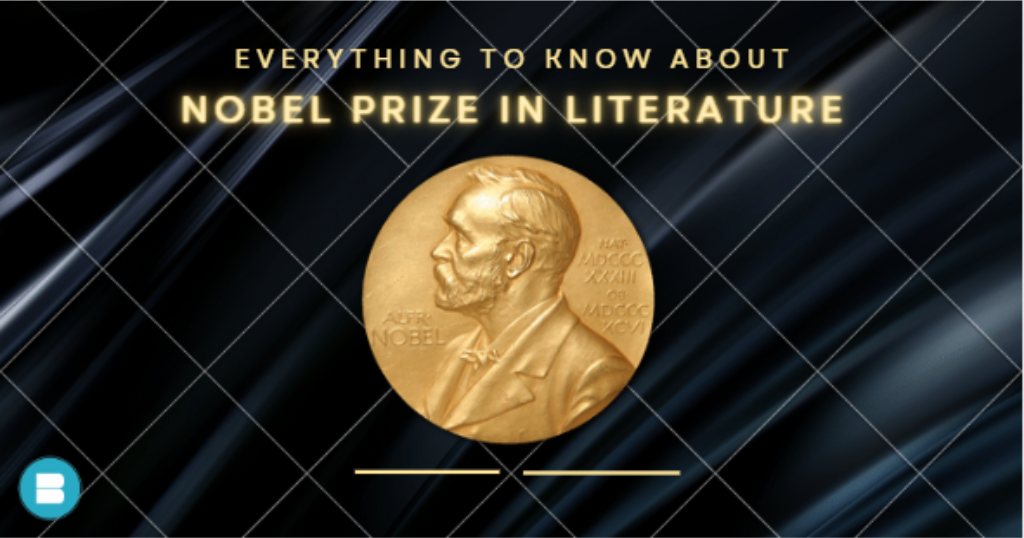
The Nobel Prize in Literature: Winners, Nomination Process.
The Nobel prize in Literature is awarded every year to an author from any country who has, in the words of Swedish industrialist Alfred Nobel’s will, “in the field of literature, produced the most outstanding work in an idealistic direction”. History of Nobel Prize in Literature In his last will and testament, Alfred Nobel specified that his funds be used to establish a number of awards for individuals who advance the “greatest benefit to mankind” in the fields of physics, chemistry, peace, physiology or medicine, and literature. Although Nobel made multiple wills during his lifetime, the final one was signed at the Swedish-Norwegian Club in Paris on November 27, 1895, just over a year before he passed away. Nobel left the five Nobel Prizes a total of 31 million Swedish kronor (US$198 million, €176 million in 2016), or 94% of his total estate. Read: List of Most Prestigious Literary Awards in 2022 The Norwegian Parliament, the Storting, did not accept the will until 26 April 1897 because of the level of scepticism that surrounded it. Ragnar Sohlman and Rudolf Lilljequist served as his executors, and they established the Nobel Foundation to manage his estate and oversee the awarding of prizes. Nomination Process of Nobel Prize in Literature The Swedish Academy solicits recommendations for potential winners of the Nobel Prize in Literature each year. One may be nominated by an Academy member, a member of a literary academy or society, a professor of literature or language, a former Nobel laureate in literature, or the head of a writers’ organisation. Nominating oneself is not permitted. Each year, thousands of requests are sent, yet as of 2011, only about 220 proposals had been returned. These submissions must be submitted by the Academy by February 1 in order for the Nobel Committee, a working group of four to five Academy members, to review them. The committee reduces the number of applicants to about twenty by April. The Academy approves a short list of five names before the end of May. The works of the five contenders are read and evaluated over the course of the following four months. The candidate who earns more than half of the votes is named the Nobel laureate in Literature when the Academy members vote in October. No one may win the prize until they appear on the list at least twice, which causes many authors to recur and undergo multiple reviews throughout time. Read: Tips and tricks to promote your Book on Social Media? Typically, the prize is revealed around October. However, the prize has occasionally been announced the year following the nominal year; the most recent example of this was the 2018 award. The Swedish Academy declared on May 4, 2018, in the middle of scandal regarding allegations of sexual assault, conflicts of interest, and resignations of officials, that the 2018 laureate will be revealed with the 2019 laureate in 2019. Nobel Prize Literature 2021 Winner The Nobel Prize in Literature 2022 has not been awarded yet. It will be announced on Thursday 6 October. Abdulrazak Gurnah won the Nobel prize in Literature 2021 “for his uncompromising and compassionate penetration of the effects of colonialism and the fate of the refugee in the gulf between cultures and continents.” Born in Tanzania on December 20, 1948, Abdulrazak Gurnah is a British novelist and professor. His books include Desertion (2005), By the Sea (2001), which was longlisted for the Booker Prize and shortlisted for the Los Angeles Times Book Prize, and Paradise (1994), which was shortlisted for both the Booker and the Whitbread Prize. Abdulrazak Gurnah won the Nobel prize in Literature 2021 Read: List of successful self-published authors who chose self-publishing Nobel Prize in Literature is one of the most prestigious awards in literature. It is one of the five Nobel Prizes that Alfred Nobel created in his will in 1895. The Nobel Prize in Literature is generally given as the final prize at the ceremony. It has been given to 118 people as of 2021. Rudyard Kipling, who was 41 years old when he received the prize in 1907, was the youngest laureate. Doris Lessing, who aged 88 at the time of her award in 2007, was the prize’s oldest laureate. BlueRose Publishers have an award called BlueRose Awards for the authors who publish with us. Regardless of their genre, language, or geographic location, the prize aspires to recognise significant literary luminaries in the world of literature. The goal of the BlueRose Book Awards is to honour authors who have consistently worked to improve society. The goal of BlueRoseONE is to bring together under one roof the many true stories of well-known and up-and-coming authors. This area will provide readers and writers with a platform to explain and investigate the various shades of an author’s journey.
- 1
- 2
